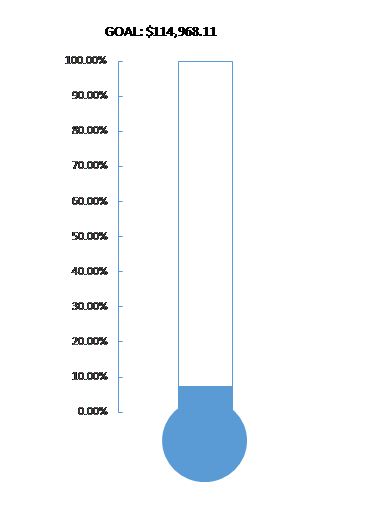
Remember that sometimes, not getting what you want is a wonderful stroke of luck.
Dalai Lama
Last time we met with Charlie he was feeling like he has lost complete control of his life and finances. His employment status was uncertain as he had been informed that his position was eliminated by his employer as a result of restructuring under COVID pressures. Charlie is still employed and supporting his organization in a senior leadership role. Let’s have a detailed look at his personal and financial progress.
His allocations for rent, car loan, fuel, insurance and groceries remain the same at $33,212.16 per year, $2,767.68 per month. Charlie has begun paying down debts by focusing his limited financial resources on this priority, he has also negotiated a repayment agreement for his tax bill.
Charlie reports that he has focused on assessing his personal goals in the past 3 months. He has evaluated his experience, skills and interests. Charlie now feels that although significant and unpredicted change has occurred in both his personal and career life that he can still achieve the financial independence and early retirement (FIRE) that he was working toward. Charlie states that he can now see how the events over the past three 3 years have created the potential for a better future than he had planned before. Charlie has asked for help to develop and exit strategy from his career and has chosen a date for this goal.
PAYING DOWN DEBT AND TAX OWED
Greg continues to work with Charlie. Charlies’ main priority reducing his debt load and freeing up resources to focus on creating an asset base where Charlie can begin to earn passive income. Charlie has made this a long-term goal.
Charlie has documented all debts including his tax owed and will track monthly payments toward reduction of this debt. The tracked payments represent payments against principle, not the minimum monthly payments that cover little more than credit interest. Charlie reports he has not incurred any unexpected expenses since the initial meeting and has made good progress on ensuring he controls non-essential expenses. For tracking debt repayment Charlie is using a template that we provided for him which can be downloaded here. We also recommend Charlie request relief from annual fees charge on his credit cards this year to assist him in reducing principle balances. This request is based on his strong customer history with his credit card providers.
Charlie’s earnings continue to be strong and he will focus all available funds to the priorities being discussed here. To restate his priorities Charlie is eliminating debt, minimizing expenses while developing long-term goals and tracking of his progress. This has given Charlie more control over his money and financial future, the first recommendation we left him with in our last meeting. Charlie reports that the complete loss of control he was struggling with is no longer his main concern and he is sleeping better and taken up regular exercise again.
Charlie has also taken steps to start his side gig to begin generating self-employment income and he has completed a financial analyst course that will help him in his quest to develop the financial independence he desires.
Charlie has discussed tax savings options and a tax strategy with an accountant whom he has chosen to continue to work with. Charlie may realize some tax savings from his new home-based business and has found good alignment with his values and the values of his accountant. Charlie does not want to take any shortcuts financially and advises he feels he can trust this accountant. Charlie was advised by his accountant to approach his bank for a significant RRSP loan that will reduce his current tax owed. We will review this option in more detail in a future update as Charlie reports the $500 monthly tax installments will continue for 4 years and we have time to work on this issue.
Charlie also advises that he took steps to reduce his credit limits on his credit cards. This is a good step toward his goal of eliminating debt, but this step may place his credit rating at risk. Because Charlie is carrying balances on his credit cards now, and he has not carried balances in the past reducing limits poses a risk to his credit history. When an individual’s debt-to-credit ratio is high this will have a negative impact on their credit rating. Because Charlie reduced his credit limit(s) he now has a high credit utilization rate (debt-to-credit ratio) which may negatively impact his healthy credit rating. We advise Charlie to reduce his credit UTILIZATION; in the future he can determine if he wants to close credit cards entirely or reduce their limits and only after assessing the impact of these actions on his credit report and overall credit utilization. These are strategic financial decisions that make a difference in long term financial options.
SAVING FOR HIS DAUGHTERS EDUCATION
Charlie will assess his ability to contribute to his daughters RESP in the fall, further updates will be provided on this and we agree saving for his daughter’s education should be a priority.
FINANCIAL FREEDOM
In addition to prioritizing debt elimination Charlie’s dream of financial independence and early retirement are beginning to take form once again. In fact, if Charlie informs us that he feels better prepared for this reality than he had felt years ago. This is re-awakening his motivation and drive.
Greg recommends the following steps for Charlie:
- Continue to pay debt without changing credit limits, keep control of his money and financial future
- Develop his side gig and the skills required to support its success
- Build investment knowledge and begin to research assets
- Reward himself for the strong progress made so far toward his goals.
FINANCIAL FREEDOM SCORE: Two ** out of Eleven
<< Previous We will check in with Charlie to see his progress regularly. Next >>

